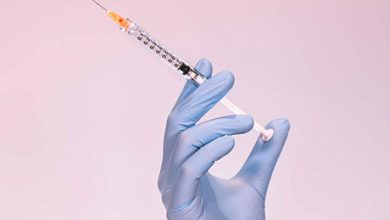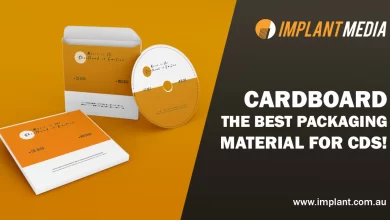Internet of Things Applications: How IoT is Revolutionizing Industries

The Internet of Things (IoT) is a network of internet-connected devices ranging from smartphones to sensor-equipped manufacturing machines. The connected devices can transfer data to make a variety of tasks easier. It is transforming how we do business. Technology is extremely crucial for digital industrial transformation.
From the healthcare and automotive industries to the energy and manufacturing industries, IoT is revolutionizing various industries with a better user experience. IoT devices and integrated systems will become increasingly essential for everyday lives as the Industrial revolution 4.0 and home automation initiatives gain momentum.
By 2025, the market value of the Internet of Things (IoT) devices is expected to skyrocket to USD 1.6 trillion. According to the KPMG analysis, the Internet of Things is one of the technology disruptors fuelling the most significant corporate disruption. As the IoT grows in popularity, corporate executives are realizing the value of incorporating IoT into their operations.
In this article, we will look at how the Internet of Things is transforming industries.
Let’s get started!
IoT as a Business in Various Industries
At the start of 2019, there were a total of 26,792 specialty IoT-base startups. The numbers are rapidly increasing as many enterprises discover new applications for the use of technology. Many various sectors are looking for IoT application development services to help them integrate the new technology into their current business platform. The digital revolution of the industrial IoT greatly simplifies operations while increasing productivity.
Here are some of the largest sectors that are incorporating IoT into their business operations to remain ahead of the competition.
1. IoT in Healthcare
The industrial Internet of Things (IoT) application in the healthcare industry can not only make operations more efficient but also better patient care. The technology increases patient-doctor communication by remote monitoring and virtual visits. It aids hospitals in keeping track of their patients and medical personnel. IoT healthcare devices also assist in chronic illness management. Cancer screenings, patient monitoring, enhancing system openness, remote operations, and a variety of other possible prospects are being investigated by developers.
IoT can collect, analyze as well as transfer data to keep everyone up to date. IoT can reduce inefficiencies and errors, leading to greater optimization. In addition, wearable and implanted technology will bring several Industrial IoT benefits, such as eliminating the need for patients to visit a hospital for monitoring basic vitals like blood pressure, weight, pulse, and heart rate. The devices will pass on the information to the doctor, who will then prescribe medication if required. This way, IoT reduces the expense of patients visiting hospitals for checkups.
These smart devices can also give you immediate feedback on your health needs by measuring your vital factors, making personalized advice on nutrition and relaxation activities.
2. IoT in Energy
The energy sector was one of the first to embrace the Internet of Things. Smart meters involve installing sensors along substations and distribution lines to provide more detailed tracking of energy use, allowing energy providers to bill customers more efficiently. Smart meters can also be used to track the amount of energy that users of green technology give back to the grid. This ultimately allows them to be compensate and promotes the use of environmentally friendly energy.
IoT-based management systems can also be used to make decisions about voltage control, load switching, network topology, etc. In addition, the information on energy consumption could help firms decide where to build new infrastructure and upgrade old equipment.
Since technology becomes more accessible, the connection is expanding and revolutionizing numerous sectors.
3. IoT in Manufacturing
The Internet of Things (IoT) enables improved automation, data collection, analytics, optimized workflows, and processes, driving forces behind the Industry 4.0 movement. Using the intelligence enable by the Internet of things, sensors can be develop to function in unison to produce outputs on a factory line. IoT can acquire information about the current state of the environment. And infrastructure in order to implement fail-safe systems and smart technology for proactive maintenance and automatic recovery in the event of a failure. In this way, the maintenance process becomes more efficient, field staff utilize effectively, downtime is decreased, and total costs are lowered.
The system will also be able to share information with analytics tools, allowing them to enhance and evolve workflows and processes in real-time.
4. IoT in Agriculture
Agriculture and farming can benefit significantly from the Internet of Things (IoT) technologies. As per the BI Intelligence report, the number of IoT device deployments in agriculture is project to increase from 30 million in 2015 to 75 million in 2020. Farmers will indeed be able to more effectively monitor crops and livestock utilizing internet-connected sensors. And smart technology, as well as analyze information on-farm assets and use drones to survey land.
In addition, the worldwide smart agricultural industry is forecast to treble in scale by 2025, to $15.3 billion. Take a look at how Internet of Things technology is being use in real-world agriculture:
- Crop management- Smart Elements, and Pycno
- Greenhouse automation- Growlink
- Weather monitoring- Semios
- SCR management and cattle monitoring- Allflex and Cowlar
- End-to-end farm management solutions- FarmLogs and Cropio
5. IoT in Retail Industry
The consumer-centric retail industry is beginning to be transform by IoT technology. Many firms are seeing increased revenue and a wider reach as a result of IoT’s emergence in the retail industry. By 2028, IoT in the retail industry is expect to be worth USD 182.04 billion.
Retailers are moving towards smart retail IoT applications. Retailers are starting to use wireless sensors in their stores to directly reach out to their customers. For instance, after connecting to the retailer’s app, customers may get more information about particular commodities as well as personalized discounts.
Moreover, retailers can collect customer feedback directly after a purchase using an IoT sensor dashboard. Smart IoT retail app offers retailers and their customers unrivaled benefits, such as increased income, cost savings, and improved business processes.
6. IoT in Transportation
Companies may help guarantee items are deliver safely by equipping transportation vehicles with temperature sensors. In-vehicle sensors monitor everything including geolocation, velocity, speed, the direction of travel, fuel consumption, idling times as well as driving behavior. The information is analyze in order to provide positive training to drivers, which enhances vehicle efficiency. And saves the organization money while also improving the driver’s safety. What’s more, IoT technologies can forecast when fleet vehicles may require maintenance in real-time.
7. IoT in Fashion Industry
The sensors and computing speed of IoT devices are also revolutionizing the fashion industry. Smart outfits are made up of a combination of digital. And technical components that detect a person’s activity. It provide advice on how to live a healthy lifestyle. And provide customers with wardrobe choices.
In a Nutshell
The advent of the Internet of Things shows no signs of slowing down. The technology can now do everything from improving a healthcare patient’s treatment plan to assisting a client in choosing their outfit. After all, this technology’s potential is almost endless. If you are planning to incorporate IoT solutions in your product line, now is the time to hire an experienced IoT app development company to help you achieve your goal.





